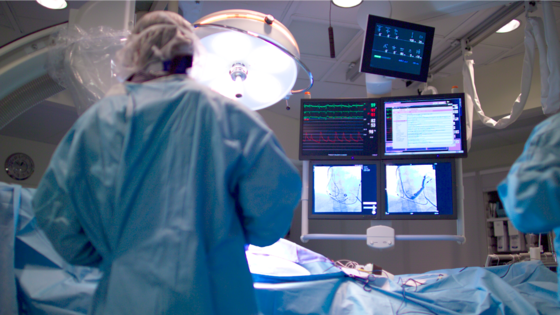The Legal Interpretations of the Applicability of Specified Clinical Trials
Once approved through clinical trials, medicine or medical devices have the potential to affect a large number of patients and have a significant impact on society as a whole. One of the items that was discussed in particular by the committee that reviewed CTA was whether clinical trials on interventional procedures fall under the category of 'specified clinical trials' or not.
The conclusion of the committee was that "clinical trials on interventional procedures that do not involve the evaluation of the performance of medicine or medical devices themselves do not fall under the category of 'clinical trials' subject to the act.2"
Since interventional procedures are evaluated with a variety of factors, such as the facilities of the hospital or the experience and skill level of the physicians, the results are rarely attributed to any one specific company or product. And since the aforementioned 'social risk' is relatively low,3 the applicability of the regulatory requirements of CTA is also considered to be low.
In addition, new interventional procedures may be performed without sufficient evaluation of their efficacy or safety, and these may become established as standard treatments if the procedure achieves widespread recognition.4
Unlike with medicine and medical devices, these do not go through the rigorous process of clinical trials, of which there are several development phases, nor must they receive approval from regulatory agencies before they can be used.
In other words, a situation may occur whereby a new interventional procedure is attempted as part of a medical treatment based on the discretion of the physician without being classified as a “clinical trial." Because of this, it is difficult to distinguish between "trials on interventional procedures" and "medical treatments that merely use interventional procedures."
Given this criterion depends largely on the discretion of physicians, there is growing concern that legal restrictions on interventional procedures will lead to a reduction in the variety of options in the medical treatment process. This may impede the progress of medical treatment for the foreseeable future and so for that reason, clinical trials on interventional procedures are considered to be exempt from CTA.
Results from a survey conducted in four foreign countries (the United States, the United Kingdom, Germany, and France) showed that there are no regulations directly targeting clinical studies on interventional procedures.5 This shows that, in principle, it is difficult to regulate this type of trial, and that trials should be conducted based on the ethical views of each investigator.
- About the Clinical Trials Act (from Ministry of Health, Labor and Welfare)
https://www.mhlw.go.jp/stf/seisakunitsuite/bunya/0000163417.html (viewed February 2022)
- Q & A regarding the enforcement of the Clinical Trials Act (consolidated version) (November 13, 2019, Ministry of Health, Labor and Welfare, Medical Affairs Bureau, Research and Development Promotion Division / Pharmaceutical and Consumer Health Bureau, Surveillance Guidance and Narcotics Control Division)
https://www.mhlw.go.jp/content/10800000/000566065.pdf (viewed February 2022)
- The 14th Meeting of the Clinical Trials Committee of the Health Sciences Council: Regulation of Clinical Trials on Interventional Procedures
https://www.mhlw.go.jp/content/10808000/000538031.pdf (viewed February 2022)
- Research and Study on Domestic and International Regulations for Clinical Trials and Interventional Procedures in Medicine: Summary Research Report
https://mhlw-grants.niph.go.jp/system/files/2018/181031/201806014A_upload/201806014A0003.pdf (viewed February 2022)
- Response to Article 2, Paragraph 1 of the Supplementary Provisions of the Clinical Trials Act
https://www.mhlw.go.jp/content/10808000/000553546.pdf (viewed February 2022)
About the Author: Shuhei Odagiri (Clinical Study & Strategic Consulting)
After working as a clinical research associate and data manager at a global CRO, Mr. Odagiri moved into R&D at a Japanese company to specialize in the field of in vitro diagnostics. In 2021, he joined TCROSS Co., Ltd. as clinical research specialist and currently has more than 3 years of experience. He has a Masters of Pharmaceutical Sciences from Kanazawa University.




